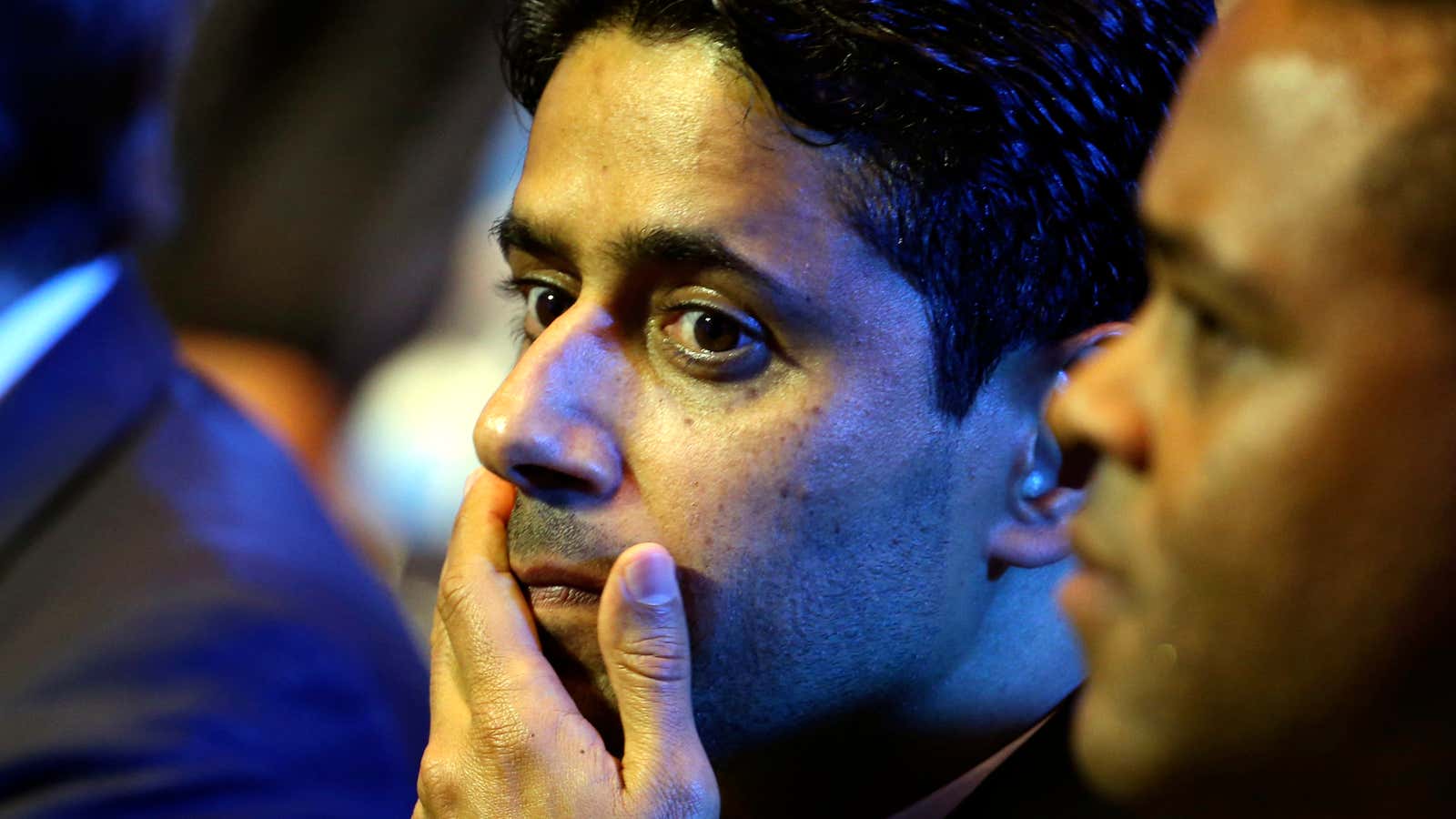Soccer has famously started wars and helped end them, but 2018 marks the first time that a country deployed soccer media piracy to attack a political enemy.
Saudi Arabia and its partners in the Middle East launched a total blockade of Qatar last year because of its friendliness to Iran and willingness to tweak Saudi political allies in public. The Islamic kingdom is even financing a canal designed to physically sever the Qatari peninsula from its map. That no-holds-barred attitude also means allowing a massive broadcast piracy effort to undermine Qatar’s Al Jazeera media conglomerates, a major source of soft power for the country and money for its ruling clan.
Oil-rich Qatar is a media giant in the Middle East, thanks to the Al Jazeera television network and their spun-out former subsidiary, beIN sports. BeIN snapped up the rights for Arabic-speaking broadcasts of the 2018 World Cup from FIFA and Grand Slam tennis matches from the International Tennis Federation. But instead of pulling in viewers and advertising dollars, they are being completely undercut by a new competitor—beoutQ.
(Gee, wonder that name represents?)
BeoutQ is reportedly based in Riyadh, and began in 2017 as a typical web-streaming piracy site that re-broadcast beIN sports programs. But it soon gained a much larger reach: It began offering ten illegal channels of beIN broadcasts on the Arabsat satellite tv network, which is jointly owned by the the countries that make up the Arab League. (That includes Qatar, which ironically owns nearly 10% of it.) Now Arabsat is transmitting BeIN’s World Cup broadcasts directly to proprietary television set-top boxes at no cost to itself.
“This piracy by beoutQ and Arabsat is not being carried out by a small outfit operating out of someone’s bedroom,” beIN executive Tom Keaveny told the Independent. “This is theft on a massive commercial scale with multi-million dollar funding underpinning it.”
The Saudi Arabia Ministry of Information denied any such piracy originated in its country. But even if the broadcasts are not being pirated there, it’s hard to imagine they could get onto Arabsat broadcasts without the data passing through ground control centers based in Saudi Arabia.
US broadcaster NBC Universal and the UK’s Eleven Sports Network say they’ve also been pirated by beoutQ.
Global sports bodies are striking back; after all, their entire model is based on controlling the marketing rights for popular tournaments. It will be hard to convince TV networks to pony up billions if they know a rival company in a different country could pirate their broadcasts without sanction. FIFA said it had hired attorneys in Saudi Arabia to fight beoutQ, and urged authorities there and in “the different countries where these illegal activities have been observed to support us in the fight against piracy.”
Global media broadcasts depend on the protection of intellectual property rights, but disputes are largely adjudicated on a domestic basis. It’s not clear what recourse Qatar may have in Saudi Arabia, since the kingdom refuses to acknowledge a trading relationship between the two countries.
FIFA and the other sports governing bodies may have some legal rights in Saudi Arabia, but a handful of international intellectual property lawyers contacted by Quartz threw up their hands at the complications of the case. The rule of law is dubious in the Kingdom, where a palace coup saw dozens of leading figures held for ransom until they handed over funds and acceded to the rule of crown prince Mohammad bin Salman. Short of sanctioning Saudi Arabia on sporting terms, there may be little they can do. Things will get even more interesting ahead of the 2022 World Cup—which is still, bafflingly, scheduled to be held in Qatar.
The situation highlights the dependence of global media on global norms. Imagine if the rising tensions between the US and China lead Beijing to turn a blind eye to a company pirating popular NBA broadcasts, undermining the $500 million deal the NBA has to digitally broadcast games there. It would be a costly, dramatic step—but then again, so are the hundreds of billions in tariffs each country is already leveling on the other.
